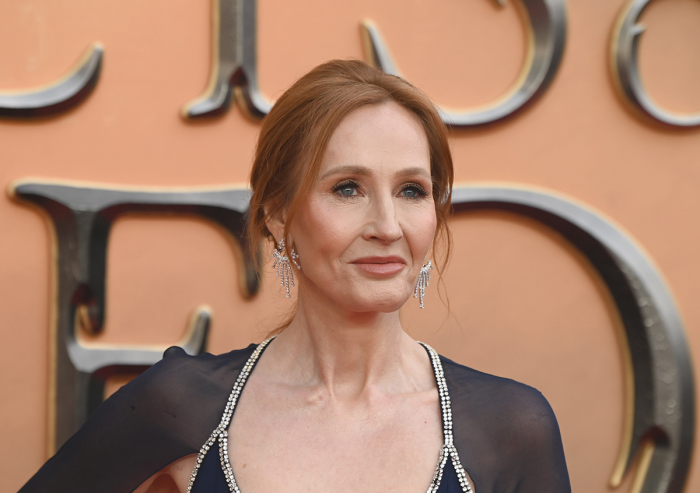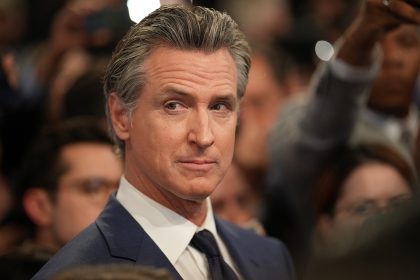
The editors of a collection of feminist essays are accusing the National Library of Scotland of censorship for excluding it from an exhibition despite meeting the requirements to be included following complaints from LGBT staffers.
As part of a “Dear Library” display to celebrate reading, the National Library of Scotland asked the public to nominate books that have shaped their lives. Titles that met a vote threshold would be included in a 10-month display.
Despite receiving double the number of nominations required, according to a Tuesday report by The U.K. Times, the National Library of Scotland opted not to include The Women Who Wouldn’t Wheesht in the display.
The book includes 30 essays from multiple women, such as Rowling, Scottish National Party Member of Parliament Joanna Cherry KC, and the former Scottish National Party Minister Ash Regan. Each woman details the campaign against Scottish First Minister Nicola Sturgeon’s gender self-identification law, which would have simplified the process for individuals to legally identify as the opposite sex.
In response to an inquiry from The Christian Post, a spokesperson for the National Library of Scotland said that anyone can access the book in one of the reading rooms, as well as the 200 other books not selected for the display.
“A full list of those publications is available as part of the exhibition,” the spokesperson added. “Libraries are vital places where people can access all kinds of publications for free, and form their own opinions.”
Following the book’s nomination, an internal LGBT network reportedly raised concerns about the book in May. However, senior figures initially decided to include the book, as The Times reported. The staff complained, saying that the book’s contents were “hate speech” and comparable to racism.
Amina Shah, Scotland’s national librarian and the National Library of Scotland chief, later decided not to include the book, citing concerns about “the potential impact on key stakeholders” who she feared could “withdraw support for the exhibition and the centenary.”
Susan Dalgety, one of the book’s editors, reflected on her love of libraries growing up in a Wednesday X post, adding that Shah’s “anti-democratic decision” has left her feeling “hurt and very, very angry.”
“That [Shah] treated our book as a harmful object, to be hidden from public view. That the prevailing culture in Scotland’s public life enabled her to feel it was appropriate for the National Library to censor a book written by women about their rights,” Dalgety wrote.
The editor noted that Sturgeon, who has written a memoir, has multiple events scheduled to help promote her book, with Dalgety noting that the Scottish politician should have this right.
“Meanwhile, our book, which challenged her approach to a significant legal and cultural shift on women’s rights is censored by our national library,” Dalgety asserted. “Who exactly weaponised this debate?”
Lucy Hunter Blackburn, who also edited The Women Who Wouldn’t Wheesht, shared in a Thursday X post that all of the book’s royalties are donated to organizations “helping women silenced elsewhere in the world.”
“So one good thing comes of the National Library of Scotland’s censorious behaviour. We’ve just shot up the sales charts,” Blackburn remarked, sarcastically congratulating the National Library of Scotland.
The editors shared a copy of a letter they sent Shah on Tuesday, accusing the national librarian and her colleagues of allowing activists on their staff to characterize the book as “harmful, hateful and akin to racism and homophobia.”
The letter argues that Shah failed to provide examples of specific passages or authors that could justify the decision to exclude the book from the public display. By not including the book in the exhibition, the editors argue, the national library excluded various women, including one of the first two women of color elected to the Scottish parliament since 1999.
“It has also excluded, among others: women from across the political spectrum who suffered unspeakable abuse for standing up for women’s rights. … These are women who have changed the course of politics not just in Scotland but in the U.K., and who spoke up for many who felt less able to do so. All these women have been smeared and their words excluded from the exhibition by your decision.”
In the letter, the editors called on Shah to “find some courage” and follow the original plan to include the book in the display, and to apologize to the individuals who worked on it.
Samantha Kamman is a reporter for The Christian Post. She can be reached at: samantha.kamman@christianpost.com. Follow her on Twitter: @Samantha_Kamman



